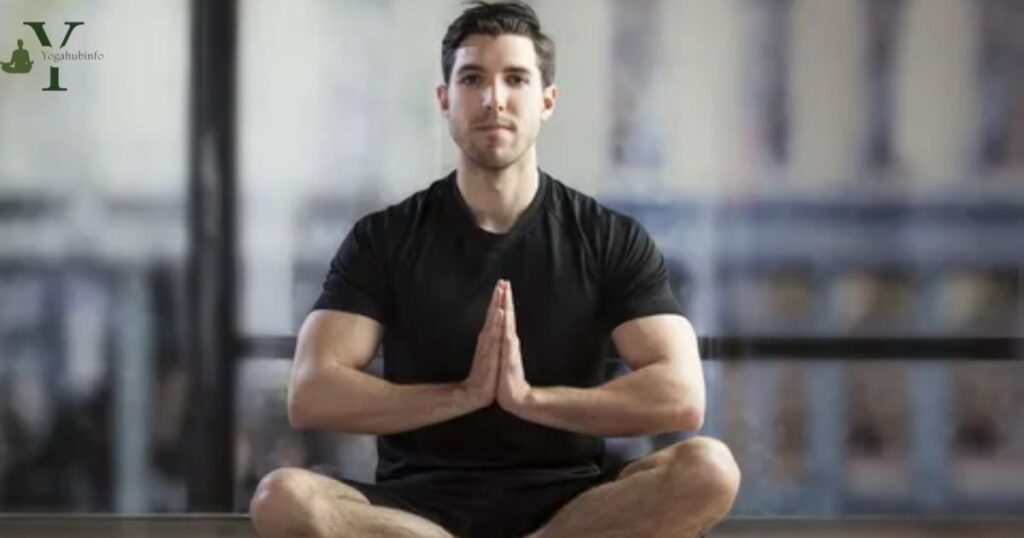Answer: The Bible doesn’t directly mention yoga, and its origins are in Hindu religious practices. However, many Christians see yoga’s focus on physical and mental well-being as compatible with their faith, as long as the focus remains on God and not spiritual elements outside Christian beliefs.
Practicing yoga is sinful within Christianity is a topic of debate. The Bible itself doesn’t mention yoga, but some find its roots in Hinduism concerning. Others view it as simply exercise and meditation, which the Bible encourages. How a Christian approaches yoga depends on their personal beliefs and comfort level with its potential spiritual connections. In other words, the answer isn’t simple, it’s up to each individual to decide how they feel about yoga and faith.
Curious about yoga and its connection to the Bible? Explore the ancient practice’s role in religious discussions. Uncover the debate on whether yoga is considered a sin according to biblical teachings. Join us in unraveling the intriguing intersection of spirituality and yoga. Delve into the age-old question: Is doing yoga a sin in the Bible?
Yoga is not mentioned in the Bible, and views on its compatibility with Christianity differ. Some see it as exercise, while others express concerns about spiritual aspects. Whether yoga is considered a sin depends on individual interpretation and beliefs. Seeking guidance from religious leaders is recommended.
What Does The Bible Say About Yoga?

The Bible doesn’t specifically say doing yoga is forbidden or a sin. But, in general, the teachings of The Bible and yoga in Christianity have different perspectives.
Yoga poses are considered offerings to many Hindu gods, which goes against Acts 15:29, saying we shouldn’t offer things to idols. The Bible is clear on the importance of avoiding idolatry.
Yoga focuses on controlling “life force energy” through breathing, while Ephesians 2:2 warns about dangers in a spiritual realm, not talking about regular air. The Bible emphasizes spiritual discernment and the recognition of the spiritual realm.
Yoga suggests emptying the mind, but Christianity says to renew your mind with God’s Word (Romans 12:2). The Bible encourages believers to fill their minds with the truths of God rather than emptying them.
Christians don’t believe you need enlightenment to connect with God. Believing in Jesus’ death and resurrection makes His Spirit live in us, making us one with Him. The Bible teaches that true connection with God comes through faith in Jesus Christ, not through seeking enlightenment or self-emptying practices like yoga.
Is yoga a sin?
The Bible itself doesn’t mention yoga, so there’s no clear-cut answer. Some Christians see it as harmless exercise, while others worry about its Hindu and Buddhist roots.
It all depends on your intentions.
If you focus on physical fitness and mental well-being, yoga can be a great way to connect with your body and mind. But if you’re using it to seek spiritual enlightenment outside of God, it might not be in line with your faith.
It’s up to you to decide whether or not yoga fits with your Christian beliefs. Pray about it, talk to your spiritual advisor, and do what feels right for you.
Should You Stop Doing Yoga?
| Factors to Consider | Yes | No | Comments/Considerations |
| Physical Health | If it improves health | If it exacerbates issues | Consider existing injuries, chronic conditions, etc. |
| Mental Well-being | If it reduces stress | If it causes anxiety | Pay attention to how you feel during and after yoga |
| Time Commitment | If it fits your schedule | If it’s too time-consuming | Assess the practicality of incorporating it regularly |
| Personal Enjoyment | If you find it enjoyable | If you dislike it | Enjoyment contributes to long-term adherence |
| Financial Considerations | If it’s affordable | If it strains your budget | Evaluate the cost of classes, equipment, or apps |
| Social Aspect | If it’s a group activity | If you prefer solo exercise | Consider the social benefits or drawbacks |
| Fitness Goals | If it aligns with goals | If it conflicts with goals | Assess if yoga complements or hinders other pursuits |
| Adaptability | If it accommodates needs | If it poses challenges | Check if you can modify poses based on your abilities |
| Consistency | If you can maintain it | If it disrupts routine | Consistency is crucial for long-term benefits |
Yoga’s alluring poses promise strength, serenity, and a gateway to inner peace. Millions dedicate themselves to this ancient practice, finding solace in its flowing sequence of stretches and sun salutations. But for some, a nagging question arises: are these graceful movements laced with a whisper of something…sinful? Should you hang up your yoga pants and abandon the quest for inner zen?
Reasons to Keep Practicing
Let’s celebrate the undeniable benefits of yoga. Your body becomes a temple of resilience, sculpted by fluid movements that boost flexibility, build strength, and improve balance. Forget creaking joints and achy mornings; yoga wakes up your body, leaving you feeling limber and invigorated. But the magic extends beyond the physical. As you bend and breathe, anxieties unfurl like knots in yarn, tension melts away, and stress becomes a distant memory. Depression.
Yoga pants the world in brighter hues, lifting your mood and bringing a newfound sense of peace. And for those seeking something deeper, yoga unlocks the door to self-awareness. Each pose becomes a meditation, guiding you inwards to explore the vast landscape of your own being. So, is it really worth abandoning such a treasure trove of well-being based on mere whispers?
In Other Aspect
Some people like doing yoga to make their body feel better. Yoga involves poses and stretches that can have positive effects on your body. But if you follow Jesus and want to do yoga, you need to think about what it means to you.
If your faith is not strong and you don’t have a good understanding of what you believe, some people might say doing yoga is not a good idea. Yoga can have spiritual ideas that might be confusing.
People who do yoga often say there’s “real” yoga that’s led by a guru for spiritual reasons, and there’s “light yoga” that’s just about physical health.
But the beliefs in yoga can go against what Jesus and the Bible teach in Christianity. Christians don’t believe that God and nature are the same thing.
If your faith is not strong, you might accidentally mix different beliefs with your Christian faith. This can make it hard to follow Jesus.
If you’re a Christian going to a yoga class, you need to be careful. Listen to the Holy Spirit, get advice from wise people, and make sure you understand Jesus and his teachings well.
Reasons to Consider Stopping

However, even the most fragrant rosebud has its thorns. While yoga undeniably benefits many, for some, it can carry hidden risks. Listen to your body, for sometimes, the pursuit of flexibility can lead to pain, especially without proper guidance. Injuries, particularly in sensitive areas like the lower back, can become unwelcome companions, forcing you to confront an uncomfortable truth: pushing beyond your limits can take your practice from therapeutic to detrimental.
Beyond the physical realm, spiritual concerns might also stir unease. Yoga’s roots are intertwined with Eastern philosophies and Hinduism, and some poses or teachings might clash with your religious beliefs. Witnessing practices like chanting Sanskrit mantras or bowing towards the East can trigger internal conflict, leaving you questioning whether your yoga mat has morphed into an unwelcome altar.
But the whispers of doubt can extend beyond the spiritual. Imagine meticulously carving out time for your practice, only to encounter frustration instead of serenity. Progress stalls, motivation wanes, and the once-joyful poses become a tedious chore. Yoga, like any relationship, needs nurturing. But if it starts feeling like a burden, it’s important to acknowledge the disconnect and explore alternatives.
Making the Decision
So, should you stop doing yoga? The answer, like a perfectly balanced downward dog, rests on a fulcrum of self-awareness and honesty. Listen to your body, evaluate your goals, and don’t shy away from seeking guidance from your doctor or a trusted yoga teacher. Ultimately, this is your journey, and the mat belongs to you. Remember, there’s no shame in choosing a different path to well-being, whether it’s a brisk walk in nature, a dance under the stars, or simply savoring the quiet stillness of mindfulness.
Let go of the expectations, the doubts, and the pressure to perform. Yoga, above all, is a personal exploration. If your journey leads you beyond the mat, don’t hesitate to walk. The path to inner peace is paved with choices, and yours is the only one that matters.
Yoga and Pastors: What do they think?

Here are some points,
Yoga and Pastors: Finding Harmony or Facing Friction?
In the sun-drenched studios where bodies bend and breathe in unison, a question arises: can yoga, an ancient practice rooted in Eastern traditions, coexist with the faith of a Christian pastor? The answer, like a downward-facing dog held with perfect balance, rests on a spectrum of perspectives.
Finding Common Ground
For some pastors, yoga is a bridge, not a barrier. They see its emphasis on mindfulness, stress reduction, and physical well-being as complementary to their own teachings on spiritual growth and holistic health. Reverend Jessica Johnson, a yoga instructor and pastor in Chicago, believes yoga “can enhance our relationship with God by quieting the mind and opening us to a deeper sense of presence.”
Concerns and Considerations
Not all pastors share this enthusiasm. Some express concerns about the potential for syncretism, the blending of religious beliefs. They worry that yoga, with its roots in Hinduism and Buddhism, might lead to confusion or compromise Christian faith. Others raise concerns about specific practices, such as chanting mantras or bowing eastward, which might be seen as idolatrous or disrespectful.
Finding a Middle Path
The conversation, however, is not always one of stark opposition. Many pastors advocate for a nuanced approach, encouraging discernment and personal responsibility. Reverend Michael Cox, a pastor in Texas, suggests that Christians can “participate in yoga while remaining mindful of its origins and avoiding practices that conflict with their faith.”
Open Dialogue and Mutual Respect
The relationship between yoga and pastors is a complex one, unfolding in a space of ongoing dialogue and mutual respect. As both sides come to understand each other’s perspectives, the potential for finding common ground and even mutual enrichment grows.
Yoga studios can open their doors to faith-based communities, offering modified practices or Christian-themed classes. Likewise, pastors can engage in open conversations with their congregants, addressing concerns and offering guidance based on individual needs and beliefs.
Remember, the path to inner peace is a personal one, and whether it’s found on a yoga mat or in the pews of a church, the ultimate goal remains the same: to connect with something larger than ourselves and find meaning and purpose in our lives.
Here are some additional points to consider
- The growing popularity of Christian yoga: Classes incorporating prayer, scripture readings, and Christian music are attracting a growing number of participants.
- The importance of individual discernment: Each person must decide what feels right for them based on their own faith and understanding.
- The potential for mutual benefit: Yoga can enhance Christian faith by promoting mindfulness and self-awareness, while Christian teachings can help yogis deepen their spiritual practice.
By fostering open dialogue and mutual respect, the relationship between yoga and pastors can move beyond the realm of debate and become a space for enriching exploration and shared humanity.
Frequently Asked Questions
Does the Bible mention yoga?
No, the Bible doesn’t mention yoga by name. It was developed centuries after the Bible was written and originated in Eastern traditions like Hinduism and Buddhism.
Can Christians do yoga?
There’s no definitive answer. Some Christians see it as a harmless exercise practice. Others worry it might lead to confusion or compromise their faith due to its religious roots.
What about chanting mantras and bowing eastward?
Some yoga styles involve these practices, which might raise concerns for Christians because they’re associated with other religions. Consider modifying them or choosing yoga styles that avoid them.
Can I integrate my faith into yoga?
Absolutely! Some studios offer Christian yoga classes with prayer, scripture readings, and Christian music. You can also practice mindfulness and self-awareness from yoga in your prayer life.
Should I stop doing yoga if I’m unsure?
The ultimate decision is yours. Listen to your heart, consult with your spiritual community, and remember, faith and well-being can find harmony in many forms.
Final Thoughts
Stretching bodies, calming minds… but is it okay for Christians? The answer isn’t as simple as a downward dog pose.
For some, like Reverend Jessica, yoga is a bridge to God. Breathing deeply, moving gently, it quiets the mind and opens the heart, deepening faith. Like prayer moves the soul, yoga stretches the body into a state of presence.
But others worry about mixing beliefs. Chanting mantras, bowing east, these practices might feel foreign, even disrespectful to Christian teachings. For them, Reverend Michael suggests caution, choosing yoga styles that avoid conflicting practices.
It’s a personal journey. Some Christians find peace on the mat, others in the pews. Both paths lead to the same goal: connecting with something bigger than ourselves. So, listen to your heart, choose what feels right, and remember, inner peace comes in many forms. Whether it’s a sun salutation or a silent prayer, the journey to enlightenment is open to everyone.
Discover if yoga is okay in the Bible. Explore how yoga fits with Christian beliefs in this easy-to-understand discussion.

Marcus Evergreen, with 8 years of yoga expertise, is the author behind yogahubinfo.com, sharing insights and wisdom in holistic well-being.











